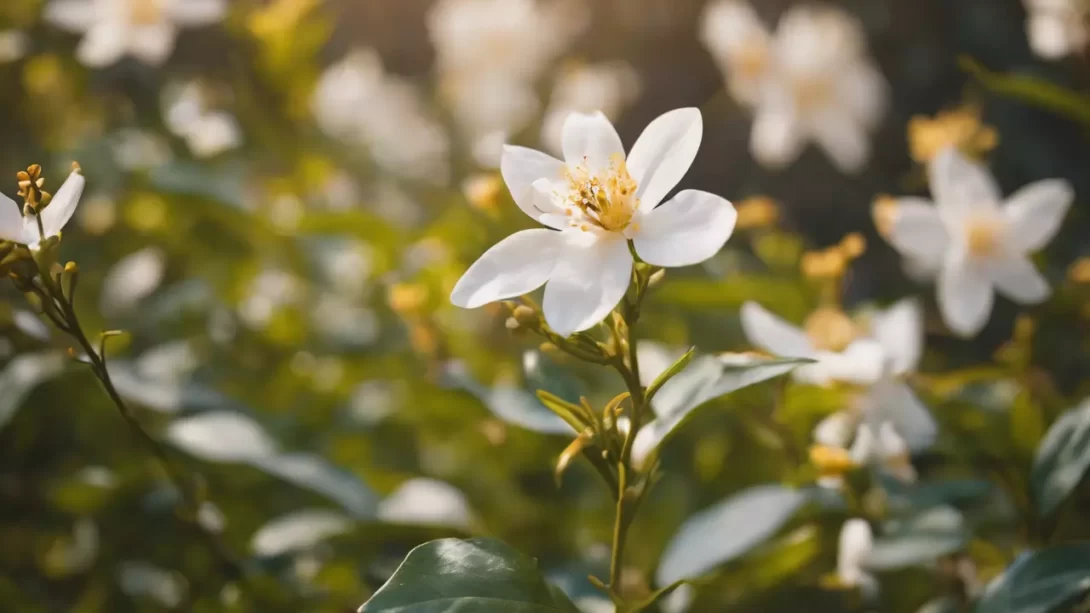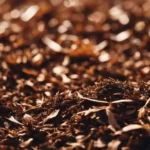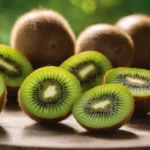Jasmine, renowned for its captivating fragrance, is a flower that has charmed people around the world. Belonging to the genus Jasminum, it plays a significant role in various cultures and traditions, often symbolizing purity, beauty, and serenity. The allure of jasmine lies not just in its delicate white blossoms but profoundly in its enchanting scent, making it a favorite in gardens, perfumeries, and ceremonial traditions.
The Aroma Profile of Jasmine
Jasmine’s scent is often described as a rich, sweet, and highly fragrant aroma, with a slightly heady and exotic quality. It is a complex scent, combining aspects of floral sweetness with a fresh, green note. This multifaceted fragrance sets jasmine apart from more linear floral scents, such as rose or lavender. The intensity and depth of jasmine’s perfume have made it a sought-after fragrance in various applications, from personal scents to home fragrances.
Varieties of Jasmine and Their Scents
There are over 200 species of jasmine, each with its unique scent profile. Common Jasmine (Jasminum officinale), often used in tea, exhibits a classic, intensely sweet and fresh aroma. Arabian Jasmine (Jasminum sambac), famous for its use in perfumery and as the national flower of the Philippines, offers a richer, slightly heavier fragrance, often described as more sensual and intoxicating. These variations in scent among jasmine species allow for a diverse range of uses and sensory experiences.
Factors Influencing Jasmine’s Scent
The fragrance of jasmine is influenced by several environmental factors. The intensity of its scent can vary depending on the soil quality, climate, and amount of sunlight the plant receives. Generally, jasmine plants that are well-cared for and grown in optimal conditions produce the most fragrant flowers. Additionally, the time of day also plays a crucial role in the scent strength of jasmine. Many jasmine species, such as the Common Jasmine, release their strongest fragrance after sunset, making their aroma more pronounced during the evening and night. The stage of bloom can also affect the fragrance, with the scent often being more intense when the flowers are freshly opened.
Jasmine in Perfumery and Aromatherapy
Jasmine’s rich and complex scent profile has made it a staple in the world of perfumery. It is often used as a heart or base note in fragrances, lending a deep, enduring quality to perfumes. The scent of jasmine is not only appreciated for its pleasing aroma but also for its potential therapeutic benefits in aromatherapy. It is believed to have calming and mood-uplifting properties, making it a popular choice in oils and scents designed for relaxation and stress relief.
Jasmine’s Fragrance in Cultural Contexts
In many cultures, the fragrance of jasmine carries significant meaning and is often incorporated into rituals and ceremonies. In some parts of India, jasmine is used in religious ceremonies and weddings, symbolizing purity and prosperity. The scent of jasmine is also integral to traditional Chinese tea-making, where jasmine flowers are used to impart a delicate fragrance to the tea. This cultural significance adds an additional layer of appreciation for jasmine’s unique and enchanting fragrance.
Symbolic Meanings Associated with Jasmine’s Scent
Jasmine’s fragrance is not only enjoyed for its sensory appeal but also for the symbolic meanings it carries. The scent of jasmine is often associated with love, sensuality, and romantic allure in various cultures. In some Eastern traditions, jasmine symbolizes purity and grace, and its intoxicating aroma is believed to have spiritual qualities, enhancing mindfulness and inner peace. The multifaceted symbolism of jasmine’s scent makes it a flower of profound emotional and spiritual significance.
Experiencing Jasmine in Different Forms
The enchanting scent of jasmine can be experienced in many ways beyond the garden. Jasmine essential oil, used in aromatherapy, captures the essence of the flower’s fragrance and its therapeutic properties. In culinary applications, jasmine is used to flavor teas and desserts, providing a subtle, sweet aroma. Additionally, jasmine-scented candles, room sprays, and personal perfumes allow the enjoyment of its fragrance in daily life, bringing a sense of tranquility and well-being.
Conclusion
The scent of jasmine is uniquely captivating, combining sweetness, depth, and a hint of exoticism. Its fragrance varies across species and is influenced by environmental factors, making each jasmine experience slightly different. In perfumery, aromatherapy, and cultural rituals, jasmine’s fragrance holds a special place, cherished for both its sensory pleasure and symbolic meanings. Whether enjoyed in a garden, as a component of a fragrance, or as part of a ritual, the scent of jasmine offers an enriching experience, connecting us to nature’s remarkable ability to evoke emotions and memories.



